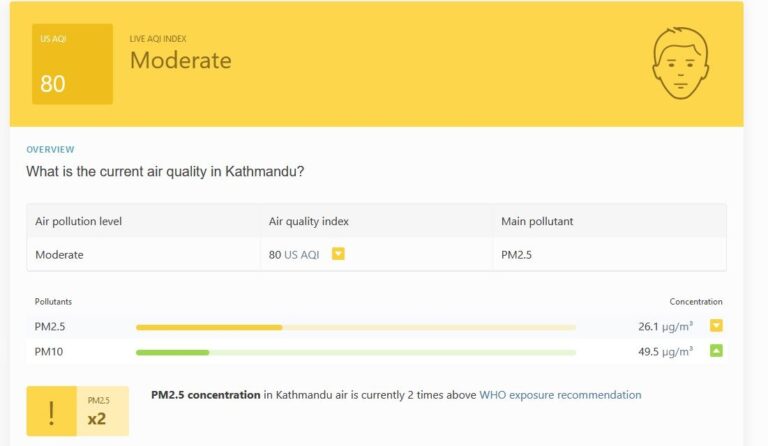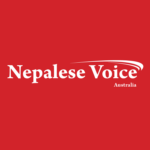
Section 13 (1) of the existing Financial Act stipulates a provision that allows the government to levy a pollution charge of Rs 1.50 per liter on petrol and diesel to be sold or distributed inside Nepal.
According to the 58th annual report (2019-20) of the Office of the Auditor General, recently submitted to President Bidhya Devi Bhandari, the Ministry of Forests and Environment collected pollution control fee amounting to Rs 9.43 billion from fiscal 2008-09 to fiscal 2019-20.
Likewise, Rs 3.3 billion was collected in fiscal 2019-20.
However, Nepal government has shied away from spending the pollution control fee collected from consumers. The amount collected as pollution control fee was deposited into the consolidated fund of the government.
The Office of the Auditor General noted that despite collecting a huge amount as pollution control fee, the government does not seem to have spent on prevention and control of air pollution.
As the country’s rural and urban areas are shrouded with various kinds of pollution, Nepalis are deprived of their fundamental right to live in a clean and healthy environment as guaranteed by the constitution.
The government has already issued Kathmandu Valley Air Quality Management Action Plan, 2020 — ‘Kathmandu valley with clean and healthy air’ — to ensure citizens’ fundamental right to live in a clean and healthy environment.
Reduction of outdoor pollution generated or emitted by transport and construction sectors, industrial enterprises and household waste; reduction of indoor pollution; awareness raising about the condition of air pollution, its causes, potential impact on public health, and mitigation and preventive measures; developing decision support system for air quality management; air pollution management in emergency situations; and ensuring financial resource for air pollution control by strengthening policy, legal and institutional frameworks, among others are the eight objectives set in the action plan.
However, the action plan has not been implemented in an effective manner and the government has made negligible efforts to control pollution through proper utilization of the amount collected as pollution control fee, the Office of the Auditor General noted.
Kathmandu alone has ranked top of the global air quality chart as the most polluted city in the globe.
According to a recent report made public by the National Human Rights Commission, unmanaged construction of physical infrastructure is the highest source of pollution, contributing 53 per cent to air pollution; followed by vehicle emission (30 per cent); brick kilns (nine per cent); indoor smoke (five per cent) and factories and open burning of refuse one per cent each.






